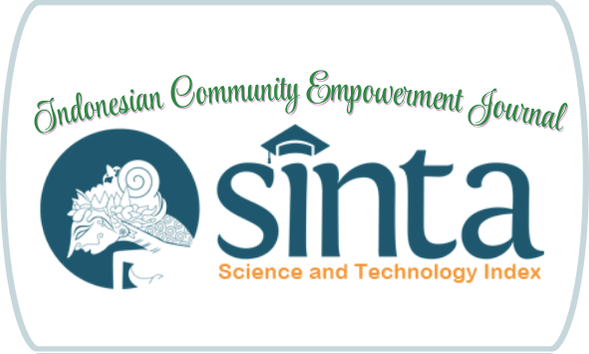Bridging the Gap: The Role of Village Funds and Social Capital in Empowering Communities in Rantau Duku, Jambi, Indonesia
DOI:
https://doi.org/10.37275/icejournal.v4i2.62Keywords:
Community empowerment, Participatory action research, Rural development, Social capital, Village fundsAbstract
This community service initiative explores the synergistic relationship between village funds and social capital in empowering communities in Rantau Duku, Jambi, Indonesia. Recognizing the potential of village funds as a catalyst for development and the vital role of social capital in facilitating collective action, this project aimed to enhance community capacity to effectively utilize these resources for local development. This project employed a participatory action research (PAR) approach, involving community members in all stages of the initiative. The intervention included capacity-building workshops on village fund management, participatory planning, and conflict resolution, along with facilitating community dialogues to strengthen social cohesion and trust. The project resulted in increased community participation in village development planning and budgeting processes, improved transparency and accountability in village fund management, and enhanced social cohesion among community members. Several community-led initiatives were successfully implemented, including infrastructure improvements, economic empowerment programs, and social welfare programs. In conclusion, this initiative demonstrates the transformative potential of combining village funds with strong social capital to empower communities. By fostering community ownership and participation, and strengthening social cohesion, this approach can effectively contribute to sustainable and equitable development in rural Indonesia.
Downloads
Downloads
Published
How to Cite
Issue
Section
License
Copyright (c) 2024 Panji Ulum, Helva Rahmi, Syah Amin Albadry, Deni Handani, Feri Antoni, H. Burhanuddin, Hamirul

This work is licensed under a Creative Commons Attribution-NonCommercial-ShareAlike 4.0 International License.










